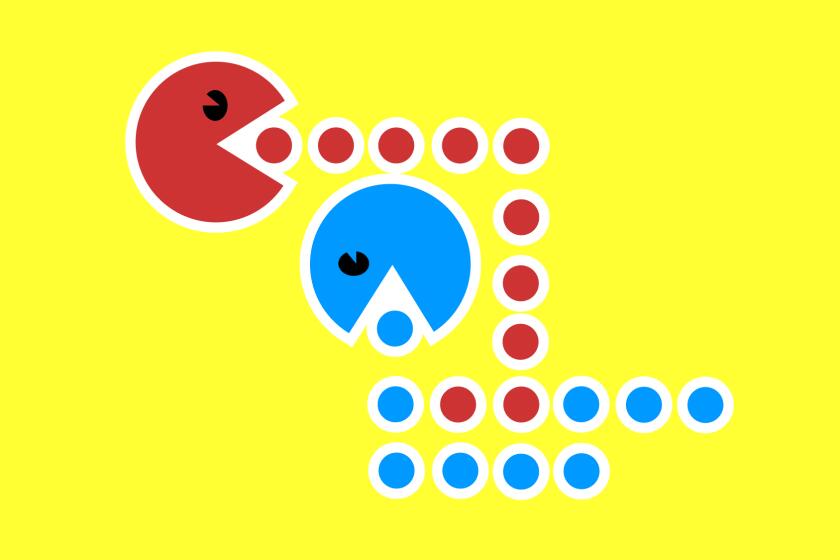Coronavirus diversions: What to play if you’re ‘bad’ at games
- Share via
Video games, to the uninitiated, can be intimidating. And yet in this time of social distancing, video games may suddenly look quite appealing to a whole new audience.
There’s no shortage of vast, enveloping worlds to explore — I’m partial to “Uncharted 4: A Thief’s End” and “Marvel’s Spider-Man” (both PlayStation 4 games) for slick adventuring, and Nintendo’s “Fire Emblem: Three Houses” for deep, time-consuming romance and role-playing — but these games are off-limits unless you have $250 to $350 for a home console and are already controller literate.
The latter, especially, speaks to a common concern of those who either stepped away from games or never got into them. “I’m bad at games” is a phrase I hear all too often.
But it is possible to play games on a budget and still discover what makes the medium so rich. While there’s some degree of learning to any game, here are a few of my favorite relatively recent recommendations for those who think they are “bad” at games. Everyone, after all, has an inner player waiting to break free.
‘Telling Lies’
If you can use a search engine, you can likely navigate Sam Barlow’s “Her Story” and the more recent “Telling Lies.” The former is a sort of remixed police procedural. The latter is meatier — bring a pen and paper — and digs into topical issues, ones that may hit closer to home now that we’re all spending more time online. While the game will hint at governmental conspiracies and peels away at interpersonal relationships, “Telling Lies” raises large questions about how online distance and an always-connected lifestyle is forever changing us.
Available for home computers and Apple’s iOS devices — I play it on my iPhone — “Telling Lies” begins with a mystery of a stolen National Security Agency hard drive full of out-of-order video snippets and unravels from there. We play, essentially, as an editor, piecing together the story by searching for keywords and looking for clues in what we watch. It’s borderline television, but Barlow’s games make piecing together the narrative itself a puzzle.
Games have long used the word “cinematic” as a bragging point, encouraging players to take a starring role, so to speak, in their own interactive story.
‘Neo Cab’
The current health crisis is exposing many of society’s inequalities and is leaving freelancers or those taking part in the so-called gig economy particularly exposed. “Neo Cab,” available for home computers, the Nintendo Switch and Apple’s $4.99 Apple Arcade subscription service, uses a near-future setting to explore a cataclysmic gap between the haves and have-nots. What makes it so enrapturing, however, is its emphasis on human emotions and how our happiness and well-being is so tenuously connected to our finances and our social media-like approval ratings.
Gamification — and how game-like systems are seeping into our work and personal lives — is one of the many themes “Neo Cab” so deftly explores. And at its core, the game asks, what happens when we start being honest with ourselves and everyone we meet? We navigate the narrative essentially by shaping conversational choices, trying to guess at when we focus on our own health or trying to please others.
Games, multiple companies at this year’s Electronic Entertainment Expo (E3) have told us, are for everyone.
‘80 Days’
Created by small English studio Inkle, 2014’s “80 Days” is a reimagining of Jules Verne’s well-known “Around the World in Eighty Days,” only here boats and rails are joined by all sorts of steampunk-inspired creations — mechanical horses, magnificent steel airships and practically magical bicycles — and prose is more important than any new railway. All of this serves to open up the world, the routes and the narrative options available to the player.
But it’s not the locales that dazzle as much as the people. The Inkle team has reshaped Verne’s story so the perspective is not from that of upper-class Englishman Phileas Fogg, a man whose interests in world affairs don’t extend much further than winning a bet; instead, we play from the point of view of Fogg’s servant Jean Passepartout. Through Passepartout’s eyes the game shows us how the rest of the world — the common people — react to Fogg’s posturing. Available on multiple platforms, including mobile, consider “80 Days” a game that could be read. Or a book that can be played.
‘Alto’s Adventure’ and ‘Alto’s Odyssey’
We’re doing without sports for the foreseeable future, and while pure athleticism can be a thing of beauty, one would be hard-pressed to find a sporting game as elegant as “Alto’s Adventure” and its sequel “Alto’s Odyssey.” The first is about snowboarding; the latter essentially is centered on sand-skiing. But these aren’t accurate representations of a game. No, these gorgeously fluid mobile games bring the action to twilight-hued, storybook-worthy settings.
The play is simple — tap the screen to jump, that’s it — but the look is fit for framing. Every panorama is given a wistful gauze. In “Alto’s Adventure,” a moon twinkles in the distance, snow glistens as it falls, the sun leaves a pensive haze and lightening streaks across the night sky. “Alto’s Odyssey,” meanwhile, charms from the moment we soar amid a hot air balloon. The locations are abstract, but these small, exotic towns are more dreamlike than realistic. If you struggle, chances are it’s because you’re taken with the visuals.
Nintendo’s Kirby returns with an adventure that turns players into amateur artists and a new mobile game spins snowboarding into one of the world’s most graceful sports.
‘Sayonara Wild Hearts’ and ‘Florence’
A relatively new and still nascently explored area of games are those that deal with love, which seems like a prime topic for us to explore while we have some time on our own. The go-to game in this arena is the mobile “Florence,” which is also often the first recommendation as a game for those new or fresh to the medium. And with good reason. “Florence” explores the ups an downs of a relationship with simple touch controls and light interactions that are borderline puzzles (making room, for instance, for a partner’s stuff). It’s a game built for contemplation, as “Florence” is built more on metaphors than brain teasers.
Last year’s “Sayonara Wild Hearts,” which is probably my favorite game of 2019, is also a metaphorical take, but it’s wild, trippy, fast and comes with a killer pop soundtrack. Also available as part of Apple’s Arcade service (the game can also be found on the Switch), “Sayonara Wild Hearts” is as much a visual album as it is a game — we maneuver a young woman through neon forests, LED-hearts and pulsating urban landscapes filled with motorcycling heartbreakers. Or maybe they’re wolves. This is a game about a journey to better days.
10 ways video games impacted entertainment in 2019: The stories they told plus where and how we play now
More to Read
The biggest entertainment stories
Get our big stories about Hollywood, film, television, music, arts, culture and more right in your inbox as soon as they publish.
You may occasionally receive promotional content from the Los Angeles Times.












